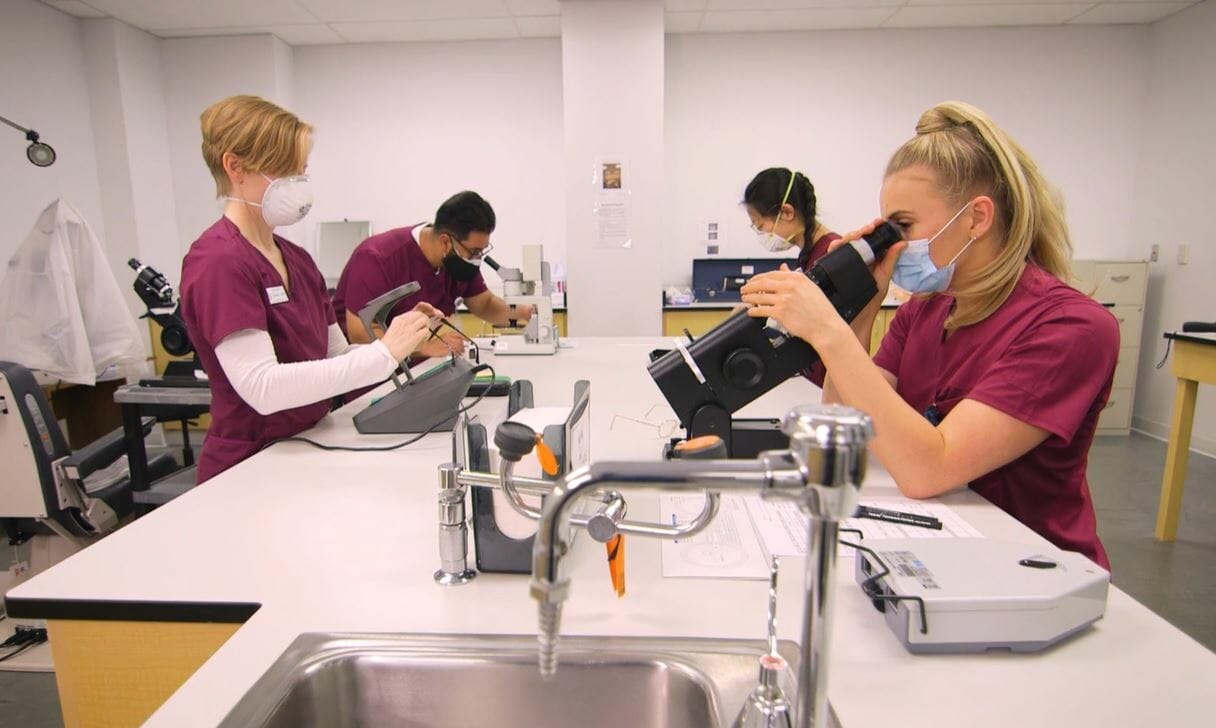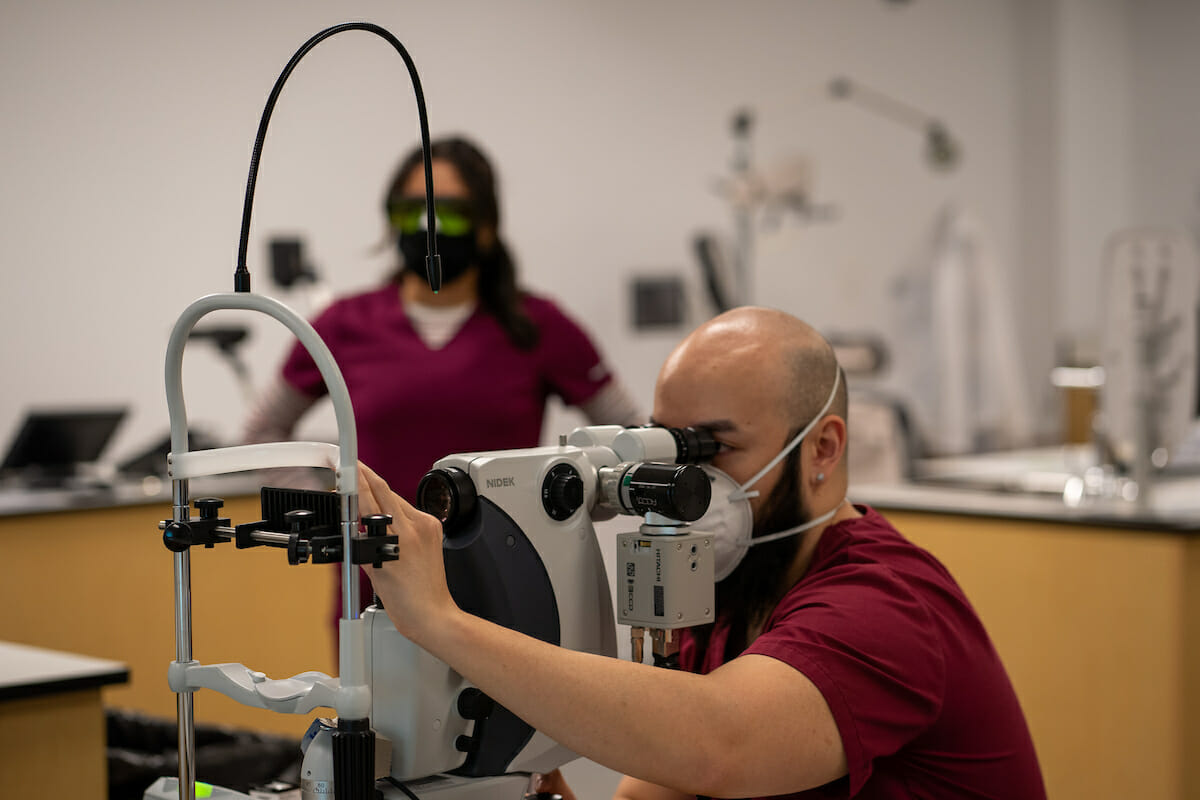
Curriculum
Examine The Curriculum
Our optometry curriculum is a four-year, full-time program leading to the Doctor of Optometry (OD) degree.
The curriculum emphasizes direct hands-on patient care in every semester beginning in the first year and continuing through full-time clinical rotations in the fourth year.
The curriculum supports many different learning styles with modes of instruction including lectures, laboratories, clinical education, and service learning.

Review The Course Listing In Our Catalog
Interprofessional educational experiences are incorporated within each of the four years. In the first year of the curriculum students from other WesternU health professions programs will be enrolled together in didactic courses, laboratories, case-based learning and service learning projects.
An interprofessional service learning component is part of the first year curriculum which includes community-based projects such as outreach to elementary schools and senior citizen groups.
The service learning course includes practical applications of health education, public health, epidemiology and biostatistics. Students from the different health professions will continue to learn together and from each other in the patient care setting, including fourth year rotations at sites where interprofessional patient care is provided.
This curriculum provides an opportunity for early networking with other health professionals and ultimately prepares you to better serve patients through interprofessional collaboration and referrals.
The curriculum:
- prepares you for entry-level optometry care along with a special emphasis on optometric rehabilitation, neuro-science and neuro-optometry.
- is patient-centered and evidence-based.
- offers early and extensive clinical experience in community-based settings such as private practices, community clinics and hospitals.
- emphasizes compassionate care, treating the patient as an individual first.
- includes interprofessional practice and education in collaboration with other health disciplines.
You will learn and ultimately master advanced diagnostic techniques and clinical skills in Objective Structured Clinical Exams (OSCE) in which you will be assessed on your knowledge base and professionalism as well as technical, cognitive and diagnostic skills to ensure you able to provide patient care at its best.
Upon graduation, you will be well prepared to successfully complete your national and state board examinations to become licensed to practice in the state of your choosing.
Caring about students and helping them achieve is a hallmark of our faculty. They are respected practitioners and scholars who keep pace with the latest teaching techniques and technology and are committed to helping you master the material.
The Office of Learning Enhancement & Academic Development Office (LEAD) is another resource for on-campus and distance students. LEAD helps students connect academic success with wellbeing. In individual counseling sessions, students learn time management, test taking, and studying strategies. LEAD facilitates training in managing stress, increasing focus, and professional skills. Also, LEAD offers a 5-week program for incoming students, Summer Preparedness and Readiness Course (SPaRC).
During the fourth year, students broaden their clinical experience at mostly off-campus externship sites. Throughout these four quarters, students will typically rotate through four sites that will provide exposure to a variety of clinical settings that may include private optometry or ophthalmology practices, Veterans Administration clinics, Indian Health Service clinics, armed forces facilities, as well as WesternU specialty clinics.

Outstanding Facilities
- four-story, 180,000 square feet
- wireless equipped
- eight auditoriums
- research labs and faculty offices
- more than 50 small-group meeting rooms
- pre-clinical space that mirrors clinical space
- specialized laboratories for optometry students
- three-story, 68,500 square feet
- Interprofessional Diagnostic Suite with three large examination rooms designed for a collaborative health care team
- adaptive equipment for the treatment of people with disabilities
- dedicated space for optometric patient care services emphasizing use of technology in contemporary practice

